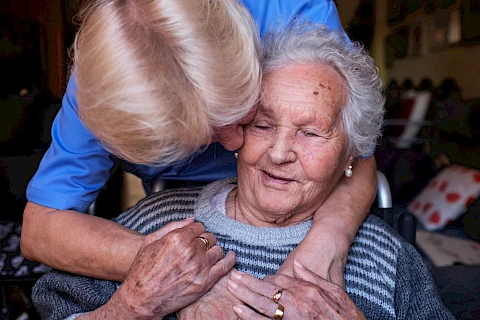
Vision loss is a common issue among seniors. As people age, conditions like macular degeneration, glaucoma, and cataracts become more prevalent. For caregivers and families, understanding and addressing vision loss is crucial. Often, caregivers are an essential part of helping seniors cope with vision challenges.
The Emotional Impact of Vision Loss
Vision loss can be a deeply emotional experience for seniors. Common reactions include frustration, fear, sadness, and anxiety. Empathy and emotional support are vital during this time. Encourage open communication about feelings and fears. Listening without judgment and validating their emotions can make a significant difference.
Adapting to Vision Changes
Helping seniors adapt to vision changes involves practical steps to ensure their safety and comfort. Start with effective home modifications. You may want to:
- Install grab bars in bathrooms.
- Ensure pathways are clear of obstacles.
- Use non-slip mats in areas where spills are common.
- Use contrasting colors on stairs and in rooms to differentiate areas.
- Ensure adequate lighting, especially in hallways and staircases.
You can also aid your loved one with new navigation techniques. You may encourage walking with a friend or caregiver or use audio cues like talking clocks or voice-activated assistants. Caregivers can also label household items with large-print or braille labels.
Low-Vision Aids and Tools
Various low-vision aids can enhance the quality of life for seniors with vision loss. Some options include:
- Magnifiers for reading
- Talking clocks and watches
- Large-print books and newspapers
- Screen readers for computers
Choosing the right aids depends on individual needs. Consult with a vision specialist to find the most suitable options. Integrating these tools into daily life takes time, so be patient and offer consistent support.
Support Groups and Rehabilitation Services
Support groups and rehabilitation services provide invaluable assistance for both seniors and caregivers. Support groups offer emotional support and a sense of community. They also provide tips and advice from others in similar situations.
Local and online support groups are available. Joining a group can reduce feelings of isolation and provide practical coping strategies.
Vision rehabilitation services, on the other hand, teach skills for independent living. They may offer orientation and mobility training or provide access to adaptive technology. These services can significantly improve a senior's ability to navigate their world and maintain independence.
Patience and Understanding
Patience is crucial when helping a senior adjust to vision loss. The transition can be challenging, but maintaining a positive and supportive attitude makes a big difference.
Strategies include:
- Encouraging independence while providing necessary assistance.
- Celebrating small victories and progress.
- Offering consistent reassurance and support.
Remember, adapting to vision loss is a process. Patience and understanding go a long way in helping seniors regain confidence and find new ways to enjoy life.
Get Professional Care for Seniors With Vision Loss
Supporting a senior with vision loss involves understanding their emotional journey, making practical home adjustments, using low-vision aids, and seeking out support groups and rehabilitation services. Above all, patience and a positive attitude are key.
If you or a loved one in Byhalia, Coldwater, Hernando, Holly Springs, or Oxford need personal assistance or companionship, contact Senior Helpers Northern Mississippi for compassionate and professional support. Your loved one's well-being is our priority.